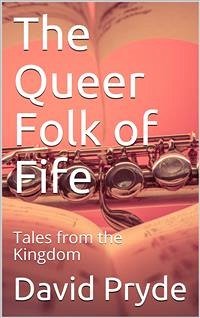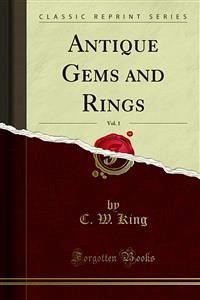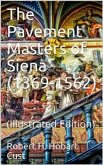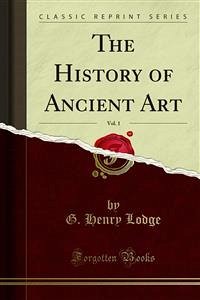Fifty years ago, the little burgh-town of Sandyriggs was a sleepy place. The inhabitants led, what they themselves called, "an easy-osy life." So little stir was there in the life of the small shopkeeper or tradesman, that he might be said to "vegetate." He grew and flourished where he had been born, and among his own schoolmates and his parents' cronies, who still called him by the fond familiar name of his boyhood, "Johnny," or "Jamie," or "Robby," as the case might be. His place of business was part of his home; and during the day he oscillated comfortably between the front shop and the back parlour. There was little competition, and very little anxiety about his trade. His customers were his friends, and he could rely implicitly on their support. It happened, therefore, that even in what he called his busiest time, he had many intervals of leisure during which he was at a loss what to do.
Of a similar complexion was the life of the small farmers who abounded in the neighbourhood. The farmer, or "gudeman," as he was called, toiled, it is true, in the fields by the side of his own servants; but he had little of the endless anxiety of the husbandmen of the present time. In those halcyon days of Protection, he was the especial care of the Lords and Commons of Great Britain and Ireland. They were his guardian angels. What did it matter to him though the drought burned up his turnips, and the drenching rains blackened his barley? The prices rose at once to guard him against loss. Consequently, after his day's "darg," and when he had exchanged his muddy boots for slippers, and taken his "four hours" of tea and buttered scones, he could sit down, snuff-box in hand and free from care, and take his ease by the side of the blazing kitchen fire. Thus the peasantry, like the townsfolk, had their intervals of leisure, during which they were open for any entertainment that might come before them.
Now, the important question came to be, How were these intervals of leisure to be filled up? There were no daily papers, few magazines, and few books to satisfy their craving for knowledge. Their minds were, therefore, obliged to feed upon the gossip of the country side; and so it came about that the gift of story-telling was cultivated, and that there were men and women who were recognised as the chroniclers of the district. These were the public entertainers, and were constantly called upon to use their gifts, especially for the delight of the young.
After the fashion of old people, they often repeated the stories which they had told me on former occasions; but I did not object, as I was thus enabled to realise them more thoroughly.
Some of the scenes and incidents which I acquired in this way, I now proceed to give as truthfully and clearly as I can.
Of a similar complexion was the life of the small farmers who abounded in the neighbourhood. The farmer, or "gudeman," as he was called, toiled, it is true, in the fields by the side of his own servants; but he had little of the endless anxiety of the husbandmen of the present time. In those halcyon days of Protection, he was the especial care of the Lords and Commons of Great Britain and Ireland. They were his guardian angels. What did it matter to him though the drought burned up his turnips, and the drenching rains blackened his barley? The prices rose at once to guard him against loss. Consequently, after his day's "darg," and when he had exchanged his muddy boots for slippers, and taken his "four hours" of tea and buttered scones, he could sit down, snuff-box in hand and free from care, and take his ease by the side of the blazing kitchen fire. Thus the peasantry, like the townsfolk, had their intervals of leisure, during which they were open for any entertainment that might come before them.
Now, the important question came to be, How were these intervals of leisure to be filled up? There were no daily papers, few magazines, and few books to satisfy their craving for knowledge. Their minds were, therefore, obliged to feed upon the gossip of the country side; and so it came about that the gift of story-telling was cultivated, and that there were men and women who were recognised as the chroniclers of the district. These were the public entertainers, and were constantly called upon to use their gifts, especially for the delight of the young.
After the fashion of old people, they often repeated the stories which they had told me on former occasions; but I did not object, as I was thus enabled to realise them more thoroughly.
Some of the scenes and incidents which I acquired in this way, I now proceed to give as truthfully and clearly as I can.








